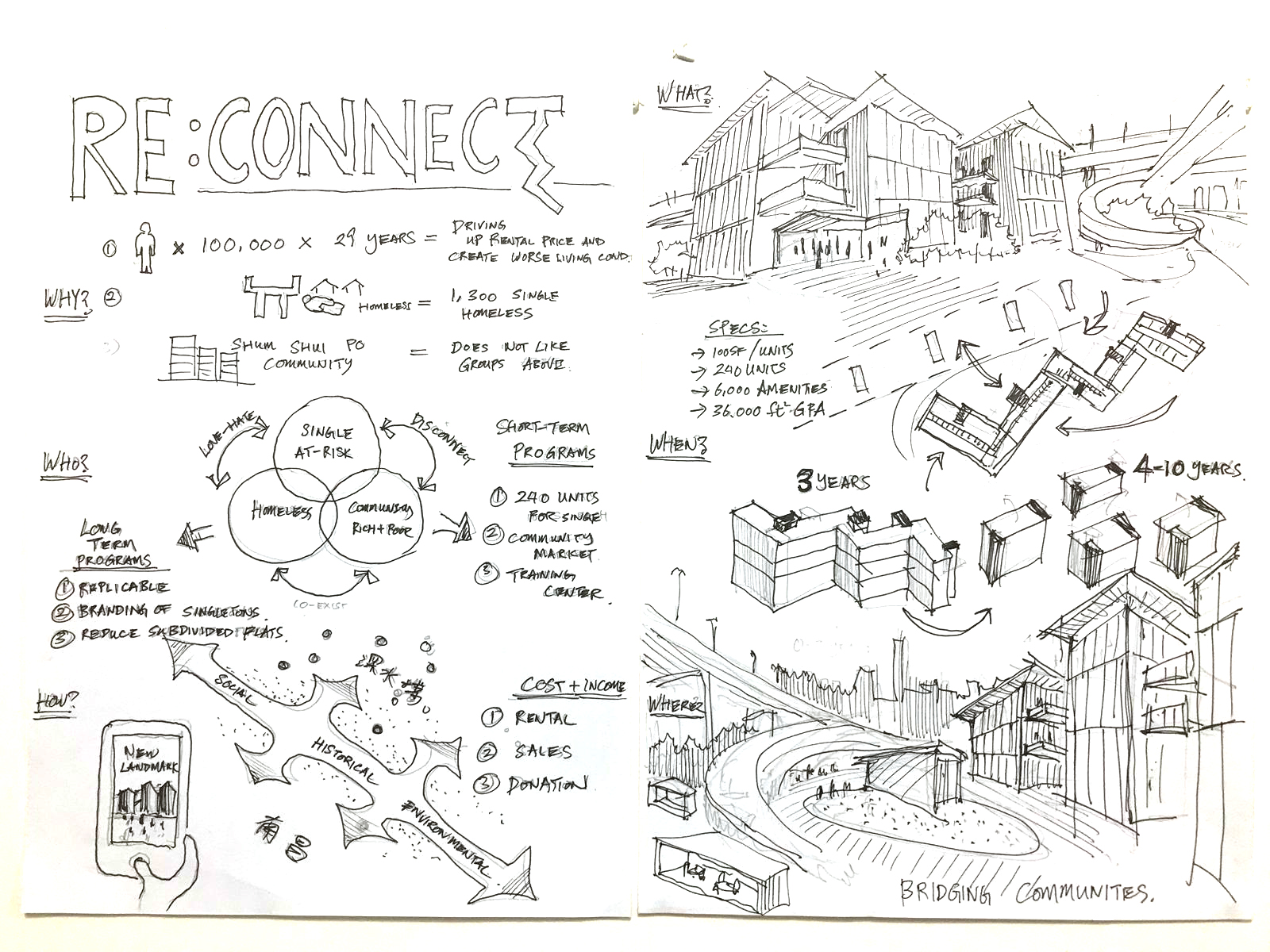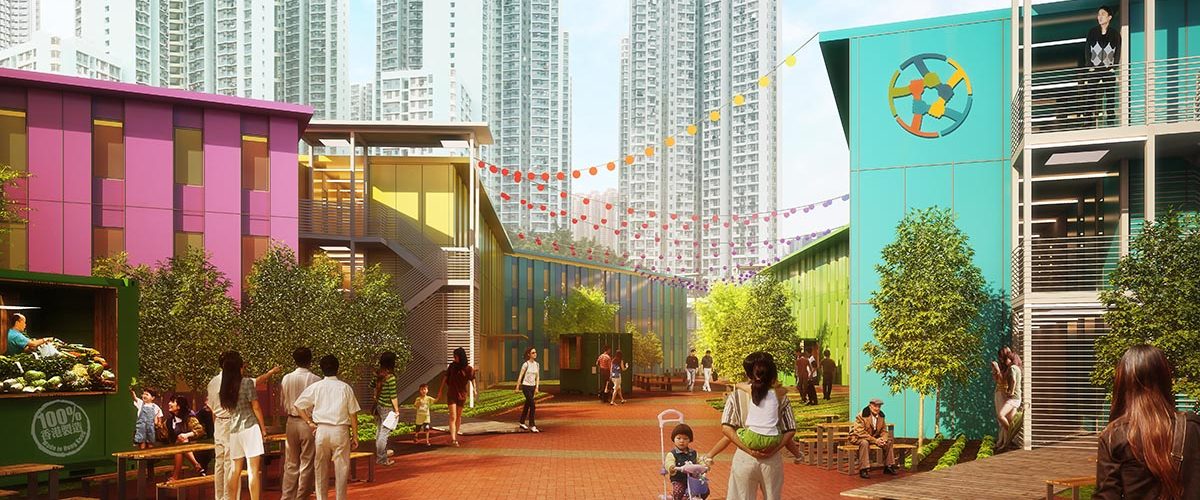What cause the Housing Crisis in Hong Kong?
We worked with Hong Kong Polytechnic University’s Design Institute for Social Innovation on the issue of Hong Kong’s housing crisis. Below are some of the problems we learned and some of the solutions we discussed.
- Lack of Public Housing:There was a protest in 2003 against the government. The homeowner was and still is against the government to provide public housing. Since the protest, there was no new public housing built for a decade. It created a man-made shortage.
- Money: the rich home buyers are swiping all the available apartments as a way to hide their illegal saving. It is ongoing for the last decade. They buy apartments and sometimes don’t want to rent out the units. They don’t want the official record to show suspicious streams of income. If you look at the ratio of the number of apartments to the number of people in Hong Kong, there are plenty of apartment for every household. It is just that most of them are luxury apartments and currently many of them are empty.
- Land Policy: Hong Kong is a tax haven, there is no sales tax and the tax on income is low. The government makes all of its money by selling land to the developer. the higher the price, the more they make. With this policy, they will only generate luxury apartment. Who would build a cheap public housing when the land is so expensive?
- Jobs: the income gap between rich and poor is widening in Hong Kong. Back in the 1980s, it is possible to buy a house even if for a blue-collar worker. People could work in a factory and would still save enough for food and a place to live. Now, the income for the labor-intensive jobs is so low that these workers typically spent all of their income on food and rent. If there is no saving, there is simply no way for them to move upstream.
- Health: many homeless people and people in subdivided flat originally live in a nice family with a nice apartment. Due to their drug problems, marriage problems, family problems or social problems, they drifted away from this resource and couldn’t re-enter the workforce. Some of them were injured and created extra difficulty to continue their high skill job. Without a healthy body and mind, the only place they can afford is either subdivided flats or the street.
- Politics: Hong Kong has a lot of lands in the new territories, but they are controlled by the indigenous people. They often work with established developers to make luxury buildings rather than giving the land to the government to make public housing.
- Approval: Hong Kong acts very slow in terms of solving the housing crisis. They have elected officials who have all the tools to criticize a plan. It often takes years to resolve a deal regarding housing.
- Geography: Hong Kong does have lots of green and mountains. 70% of the land is zoned as a park and open space. New York and Hong Kong are about the same size, but clearly, it is more difficult to build buildings and infrastructure on a mountainous terrain.
- Lack of Voice: Hong Kong is very divided. People at the top and bottom has a clear disconnect. Many people are not reaching out for help when they are really in need of help.
- Cheaters: It has become a luxury status to qualify for social housing in the midst of a crisis. The young generation will tell their bosses to lower their salary so that they can qualify for the upper-income limit to get into social housing. People who have become richer will find ways to hide their cash so that they don’t have to move out of social housing. The list to get in continue to expand while the list to move out is very slow in clearing out.
New solutions to solve the housing crisis by The Chief Executive’s 2018 Policy Address:
- a new artificial island known as Lantau Tomorrow – it politically divided the society. Some people love it and some people hate it.
- converting factories into residential buildings – some issues are being addressed in terms of safety, health, and wellbeing.
- converting old government building into housing – several temporary apartments arrived this week
- building modular houses – Avoid Obvious Architects are involved in the design for one modular housing in Sham Shui Po.
- building a new social program to train people – there is a project called Light House. it trained people in need to get better jobs. they do provide apartment while people are being trained
- Getting “nice” homeowner to donate apartment to the rental program – also part of the Light House. they started by converting an old apartment people donated into rental units
- redeveloping the old neighborhood. they are actively taking down buildings in old areas to build more housing. The issue with that is also money. many tenants are either illegally occupying the building or they want to hold out until the compensation become very high.
- telling young people to move out of Hong Kong. They encourage people to look at the Greater Bay Area. They said Shenzhen, Guangzhou, Macau can now be their home by not limiting themselves to the city of Hong Kong.

Team:
Alfred Kwok – interior design
Angle Shih – social worker/Christian Concern For the Homeless Association
Bakkie Chan – social worker/SoCO
Charles Ho – real estate/HKCSS
Gordon Chick – social worker/SoCO
Karen Chan – urban planning
Paul Law – modular construction/Aluhouse Co. Ltd.
Sunnie Lau – architecture/SOSArchitecture Urban Design Limited
Vicky Chan – architecture/Avoid Obvious Architects
Wai Tung Ng – social worker/SoCp

